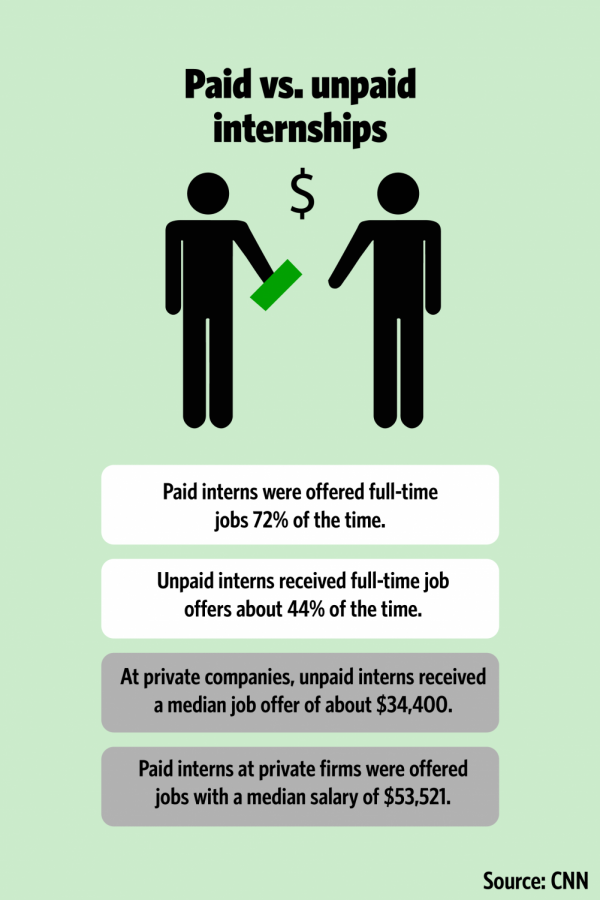Career professionals stress experience
Mar 25, 2019
As summer inches closer, some students look to lock down relevant work experiences to bolster their future employability. Career advisers want students to keep their employment options open, even if job titles do not contain the word “internship.”
The lure of experiential learning opportunities proves their impact through statistics. Sixty-eight percent of 2018 graduates interned during their time at the University, and 36 percent of graduates received a full-time job from an experiential learning opportunity, according to the 2017-18 Illini Success annual report.
Kirsten Wilcox, director of LAS Humanities Professional Resource Center, advises students to explore a variety of internships as their skills may match a job not specifically listing their major. However, she encourages experience above all else, which allows students to realize which aspects of work they like and dislike.
“Students have this assumption that if you’re going to be employed, your major has to name a career, and that’s just wrong,” Wilcox said. “Internships can be a way to get professional experience. They’re not the only way.”
Director of the Career Center Jenny Neef helps students articulate the value of their non-internship work experiences. The Career Center’s #TheWayYouSayIt campaign shows students how to express their service positions in a way that highlights work abilities they acquired.
Get The Daily Illini in your inbox!
“There’s a lot of value in experiences where students classify it as ‘just a job,’” Neef said.
Advisers acknowledge entering some industries requires long internships, sometimes unpaid. Brian Neighbors, director of career development for LAS, said he wants students to explore these opportunities if they fulfill legal guidelines outlined by the Department of Labor.
“(We encourage students) to be thoughtful and to know all of their options,” Neighbors said. “There are unpaid internships that are ways for students to get into a certain industry.”
Under the Fair Labor Standards Act, unpaid internships are fair game in profiting companies if the internships include educational training or academic credit. There cannot be any expectation of compensation.
Though Fact Sheet #71 of the FLSA lays out the legal guidelines, what makes an unpaid internship worth taking? Wilcox said working for a meaningful mission with mentorship opportunities is a good place to start.
For many students, unpaid internships are not financially feasible. Neighbors said LAS officials have discussed introducing scholarships for students who take unpaid internships.
For the time being, advisors encourage students to practice empowerment and get the most they can from their labor.
“It’s also really important that students can recognize when they are being taken advantage of or when they’re in a situation where it’s really not about learning, it’s really not a valuable experience,” Neef said. “That’s for paid and unpaid internships.”






